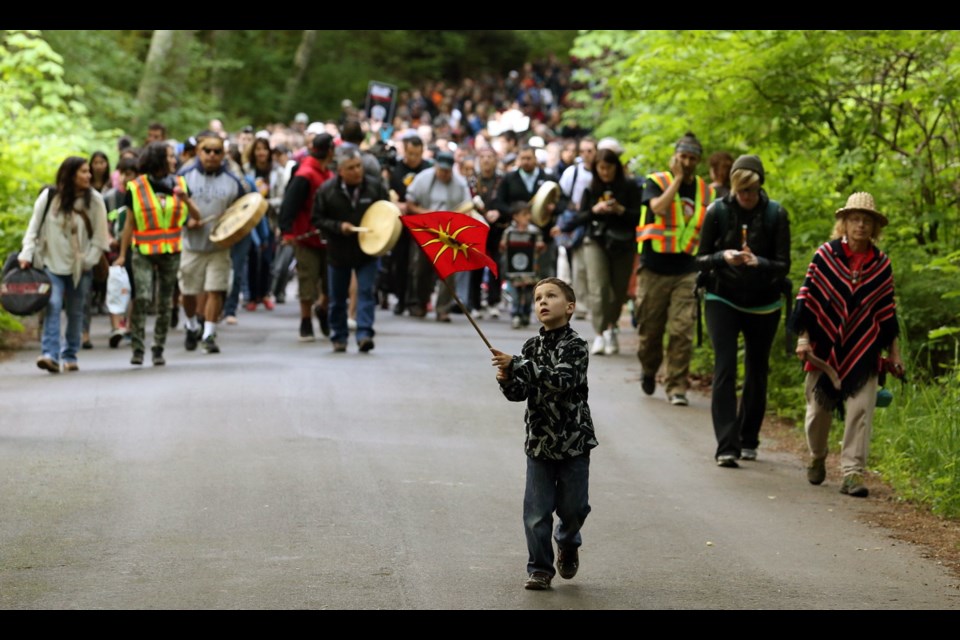A large sign with the word Pkols carved into it was firmly cemented into the ground Wednesday evening as First Nations people, accompanied by hundreds of supporters, proclaimed a return to the traditional name for a place that has been known as Mount Douglas.
To the beat of drums, as an eagle drifted overhead, the mixed aboriginal and non-aboriginal crowd cheered the name reclamation after carrying the sign to the summit of Pkols.
“I think people are hungry for the history of indigenous people in this area,” said Tsawout hereditary chief Eric Pelkey, who led the move to rename the Saanich mountain.
“They ask why there’s no reflection of the injustices that have happened here in the past,” he said as people streamed up the mountain, many carrying placards saying “Reclaim, Rename, Reoccupy.”
Saanich police Const. Petra Dornblut estimated the event drew between 600 and 700 people.
“It has been very peaceful. It’s unique for us and very enjoyable,” she said.
The mountain is sacred to the Saanich people because it represents their nation’s birthplace.
While First Nations took direct action Wednesday to restore the original name of the mountain, they have also made an official application to the province for a name change.
“We request that the province of B.C. officially recognize the traditional name Pkols to replace the colonial name Mount Douglas in the Geographic Names Registry,” says a letter from Pelkey to the Geographical Names Office.
Mount Douglas is only a beginning, Pelkey said in an interview.
The next renaming and reclaiming steps are likely to affect Mount Newton and Sidney Spit, he said.
Artist Charles Elliott, who carved the sign, showing a thunderbird over the mountain, drew thunderous applause as he noted that the action is outside the jurisdiction of Aboriginal Affairs and Northern Development Canada.
“Our ancestors must have been wondering when we would start reacting to the things that have been done to us,” he said.
The top of the mountain is also the site where the Saanich people signed a treaty with Sir James Douglas. The event was re-enacted Wednesday, showing how First Nations wanted justice for a murder, but were then persuaded that the newcomers wanted to live in peace.
This time, the treaty signing was followed by a declaration that conditions were imposed without First Nations’ consent and that original place names would be reinstated throughout traditional territories.
One of the nine volunteers who carried the hefty sign up the mountain was Paul Tangira, a Maori now living in Gordon Head.
“I think it’s an important thing to understand the history and stories of this place,” he said.



